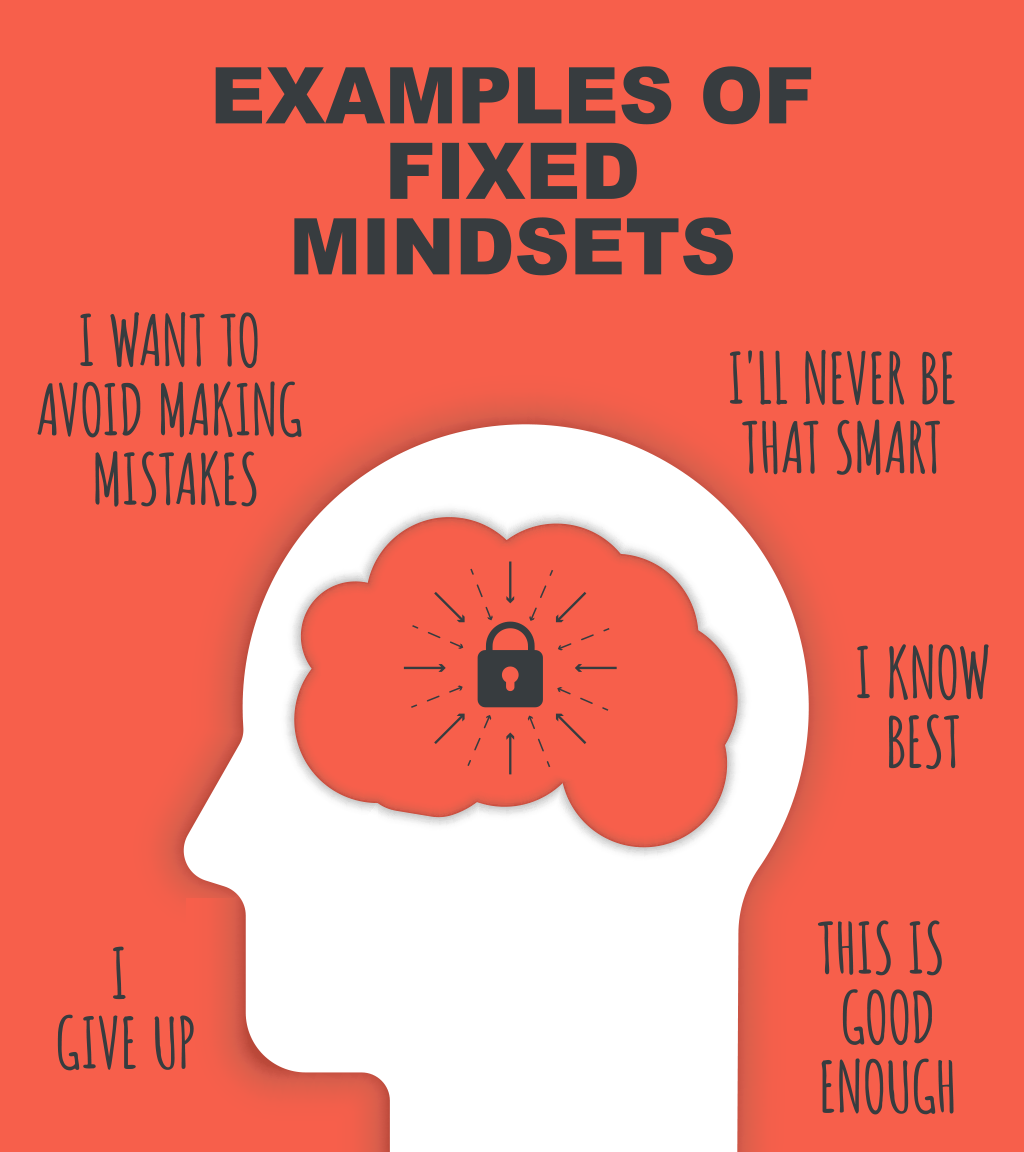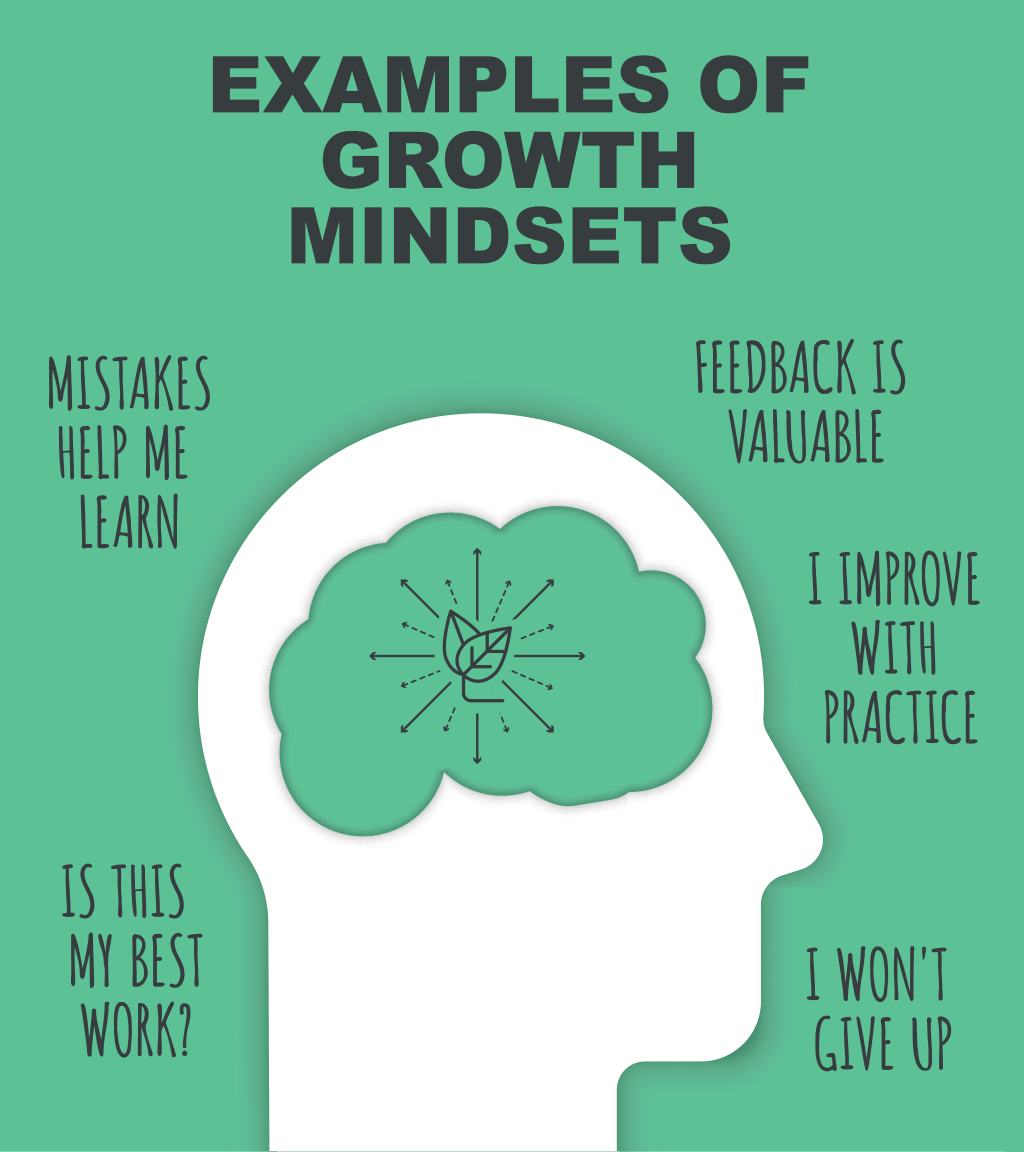Adopt a Growth Mindset at Work
Write for Business eTips
In the fixed mindset, everything is about the outcome. If you fail—or if you’re not the best—it’s all been wasted. The growth mindset allows people to value what they’re doing regardless of the outcome. They’re tackling problems, charting new courses, working on important issues. Maybe they haven’t found the cure for cancer, but the search was deeply meaningful.
In the workplace, we tend to think of newbies and trainees as people who haven't proven themselves yet. They are employees who aren't yet capable of their jobs.
By contrast, we think of ourselves as “good at my job” or “a skillful _______________.” We expect validation and praise for our daily contribution and bristle when anyone suggests that improvements could be made.
An extensive psychological study by Carol Dweck has revealed that this is a problematic and limiting viewpoint known as “Fixed Mindset.”

What is “fixed mindset”?
Fixed mindset is a static self-appraisal, defining ourselves in terms of our current proficiencies and shortcomings. “I am an excellent accountant.” “I am a terrible writer.” “I am a master plumber.” “I am out of shape.”
Any one of these statements may be true, but they focus on this moment in time and create an inertia against change. We seek validation of all the positives – having bosses and colleagues tell us we are good at what we do. We also seek absolution from the negatives. “Well, yeah, I’m out of breath because I'm out of shape.”
Fixed mindset works against improvement. You do not tend to prepare for challenges because, “I’m an excellent accountant.” When you confront difficulties, you tend to give in. “If I can’t figure out these books, they’re unfixable.” We remain where we are rather than becoming something more.
Instead of settling into the comfortable cage of a fixed mindset, we should foster a “growth mindset.”

What is a “growth mindset”?
A growth mindset focuses not on being but on becoming. It is forward-looking and goal-oriented, moving toward something better.
Instead of saying, “I’m an excellent accountant,” say, “I broaden my accounting experience with every job.” Instead of saying, “I am out of shape,” say, “I’m taking daily walks to strengthen cardio and burn calories.”
Think of growth mindset in terms of dieting. If you feel hungry when dieting, you might say, “I’m hungry. I’ll never make it.” Or you can say, “That hungry feeling means that I am losing weight.” We’ve all known those who have successfully lost weight, or successfully trained for a marathon, or successfully written a novel. Those people focus not on what they are but what they are becoming.
The difference between fixed and growth mindsets lies in how you think about yourself and your life.
How can I shift from fixed to growth mindset?
Listen to your internal and external dialogue about yourself. Watch for and flag self-appraisals that focus on what you are currently.
Stop these self-appraisals, and replace them with new thinking that focuses on what you are becoming.
Fixed Mindset: I am a middle manager.
Growth Mindset: I’m gaining skills and connections I need to move up.
Think of yourself not in terms of static definitions but in terms of ongoing processes.
Fixed Mindset: I am an alcoholic.
Growth Mindset: I’m completing my first month sober on my way to my first year.
Imagine yourself improving over time rather than degrading.
Fixed Mindset: By the time I’m 50, they’ll hire two college grads for half my salary.
Growth Mindset: By the time I’m 50, my skills and experience will outcompete three college grads.
Look to the future instead of wallowing in the present. Set goals for yourself and cheer yourself on toward them.
Fixed Mindset: I don’t understand this new program we’re supposed to use.
Growth Mindset: I’m learning a new program that will make me even better at my job.
About the Author
For 20 years, Write for Business has set the gold standard for workplace writing instruction. Now, their eTips and Courses help you gain even more skills.
Contents of this article remain the property of the author and/or publisher.



